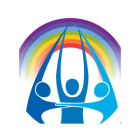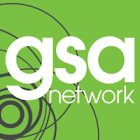Tag Archives:identity
CHOP's Gender and Sexuality Development Clinic share
 The Gender and Sexuality Development Clinic, (GSD Clinic) offers psychosocial and medical support for gender variant, gender expansive and transgender children and youth up to age 21 and their families. Their multidisciplinary team, led by Nadia L. Dowshen, MD, and Linda Hawkins, PhD, MSEd, LPC, includes specialists in gender identity development from Social Work and Family Services, Adolescent Medicine, Endocrinology, and Behavioral Health. They work with families to best meet the needs of the child or youth who is transgender, gender-variant or gender-nonconforming. They also provide consultation and training for providers and organizations interested in learning how to better serve the needs of gender-variant youth.
The Gender and Sexuality Development Clinic, (GSD Clinic) offers psychosocial and medical support for gender variant, gender expansive and transgender children and youth up to age 21 and their families. Their multidisciplinary team, led by Nadia L. Dowshen, MD, and Linda Hawkins, PhD, MSEd, LPC, includes specialists in gender identity development from Social Work and Family Services, Adolescent Medicine, Endocrinology, and Behavioral Health. They work with families to best meet the needs of the child or youth who is transgender, gender-variant or gender-nonconforming. They also provide consultation and training for providers and organizations interested in learning how to better serve the needs of gender-variant youth.
With sensitivity and caring, they address how professional medical care can help kids in this position, along with their families, explore what these feelings mean to each individual and make decisions about whether or not hormone therapy is indicated to temporarily hold back the development of secondary sex characteristics (breast development, facial hair, etc) while emotional maturity continues to grow,
Attic Youth Center share
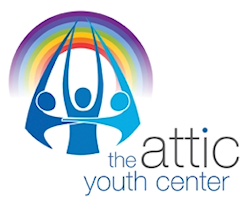 Don’t be fooled by it’s title, the Attic Youth Center, offers so much more than just a place for LGBTQIA+ youth to hang out. I even love the backstory of this place. It was originally started as an eight-week program, by two graduate students back in 1993. Hosted in the attic of a building, the kids wouldn’t let it end. Since that time, it has grown to being a significant resource for area youth.
Don’t be fooled by it’s title, the Attic Youth Center, offers so much more than just a place for LGBTQIA+ youth to hang out. I even love the backstory of this place. It was originally started as an eight-week program, by two graduate students back in 1993. Hosted in the attic of a building, the kids wouldn’t let it end. Since that time, it has grown to being a significant resource for area youth.
I think what I love about it the most is that the heart of this organization is to help kids to grow as citizens who are engaged in the world around them and have a voice. So, not only are there support groups, counseling, case management, healthy choices education, and life skills opportunities, the kids work on community projects together with opportunities for leadership roles. Plus, the website has inspirational stories and lists of resources.
And, as if that’s not enough, the Bryson Institute offers various trainings regarding current “best practices” for working with LGBTQIA+ youth. You can contact them, explain the intended audience and needs, and they can customize a training for your organization. Clearly, this organization is worth checking out!
Dara Hoffman-Fox, LPC share
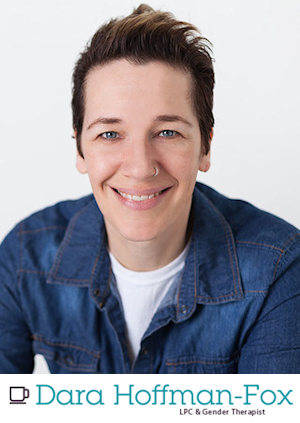 Dara Hoffman-Fox, LPC is a therapist that specializes in transgender issues. Tons of quality information here. Plus, Dara a series of videos where they speak to the viewer who is trans, agender, nonbinary or questioning their gender identity, and provides some guidance as to how to think through the things you may be feeling/experiencing. They also have an e-newsletter that you can sign up for.
Dara Hoffman-Fox, LPC is a therapist that specializes in transgender issues. Tons of quality information here. Plus, Dara a series of videos where they speak to the viewer who is trans, agender, nonbinary or questioning their gender identity, and provides some guidance as to how to think through the things you may be feeling/experiencing. They also have an e-newsletter that you can sign up for.
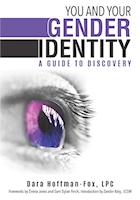 One specific resource that I came across on their site is their “My Coming Out Master Plan” with accompanying YouTube video. It’s a worksheet that helps you to think through and plan for how you would like to come out to family and friends. A version of that and many more resources like it are in Dara’s book, “You and Your Gender Identity: A Guide to Discovery.” I highly recommend that you pick-up a copy.
One specific resource that I came across on their site is their “My Coming Out Master Plan” with accompanying YouTube video. It’s a worksheet that helps you to think through and plan for how you would like to come out to family and friends. A version of that and many more resources like it are in Dara’s book, “You and Your Gender Identity: A Guide to Discovery.” I highly recommend that you pick-up a copy.
Gay Straight Alliance (GSA) Network share
Gender Sexuality Alliance (GSA) clubs, are typically found in high schools and colleges. The GSA Network supports Gender & Sexuality Alliance (GSA) clubs for students in high school and college settings. These clubs are incredibly important because I have found that they are often the first safe place in a teen’s life where they can let down their guard, express their true-selves and feel real-life support that they haven’t found in other parts of their young lives.
As I described in my post about GLSEN (another organization that provides support to GSA’s), the GSA Network is one of two organizations that helps to set-up, advocate for, and provide resources to individual GAS clubs, The GSA Network operates the GSA Network of California, which connects over 900 clubs across the state, the National Association of GSA Networks, which unites 40 statewide networks of GSA clubs, and GSAs Unite, an online campaign and petition platform supporting youth organizers across the country. (As far as I can tell, GSA’s were originally orchestrated and supported by the GSA Network, originating in California. It seems that GLSEN has stepped in as another agency that supports these clubs.)
If there isn’t a GSA club available in your (or your child’s) school, and you would like to start one, they can help you do this. They also provide ongoing resources to help run a successful, healthy, supportive club.


